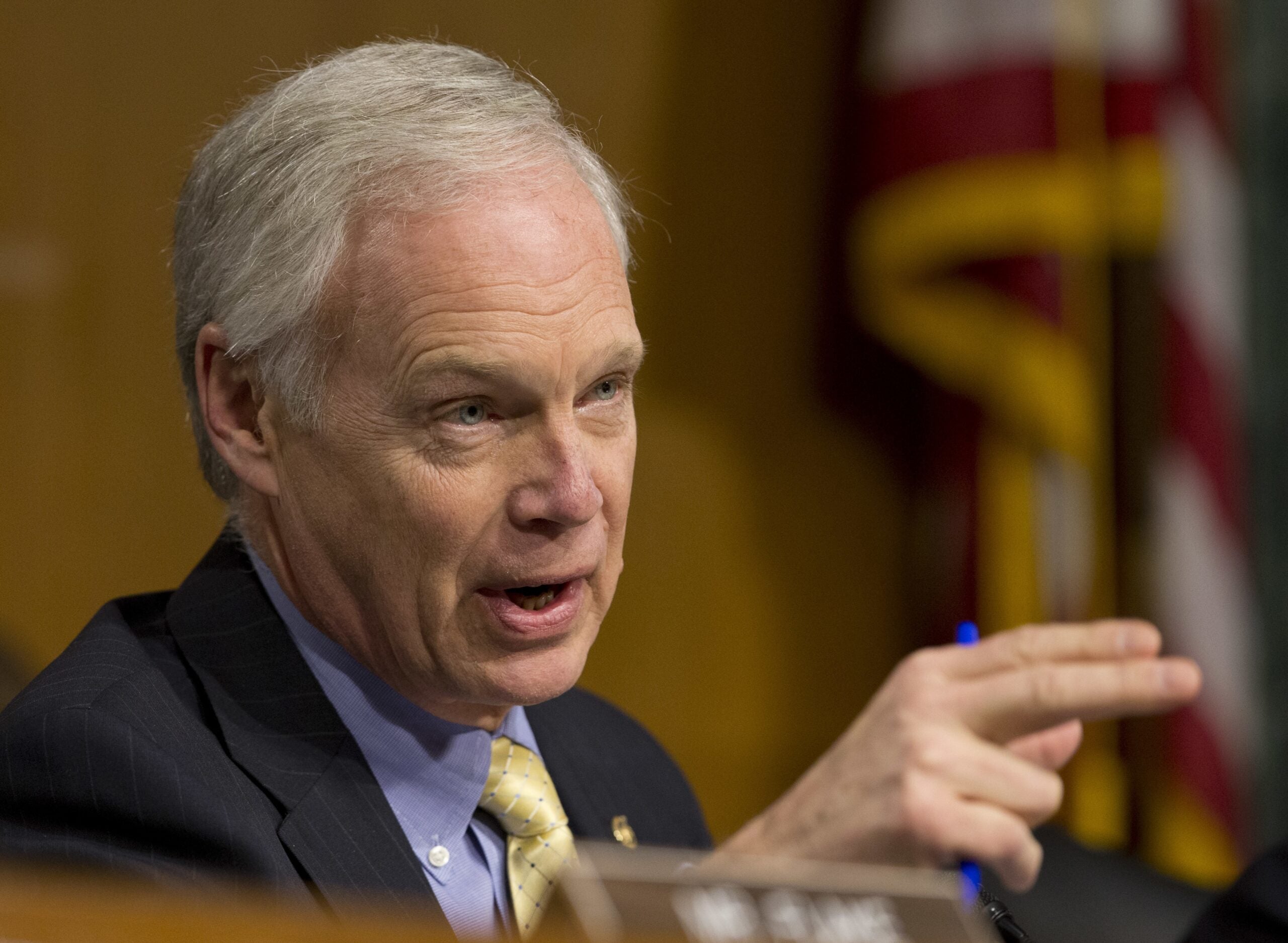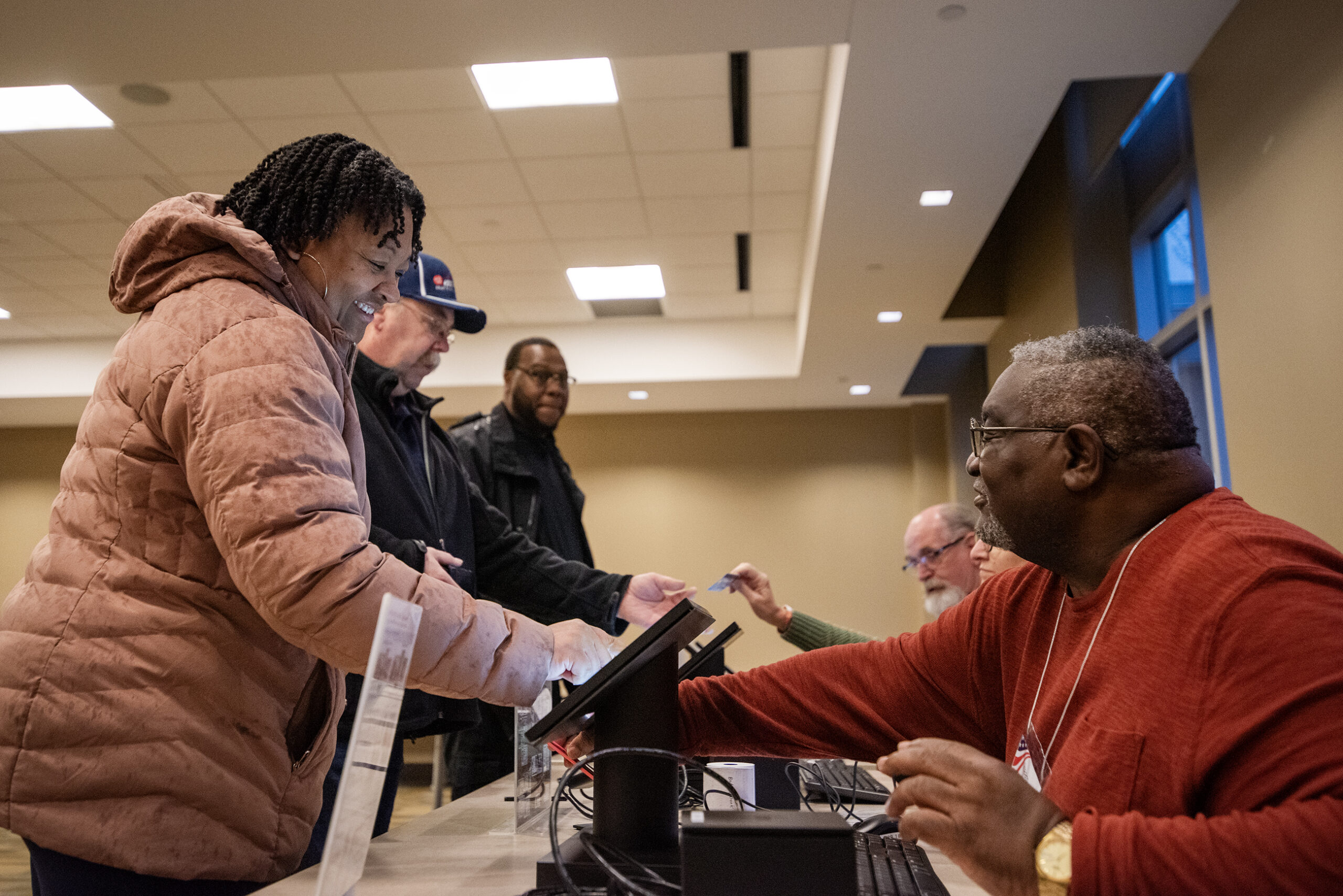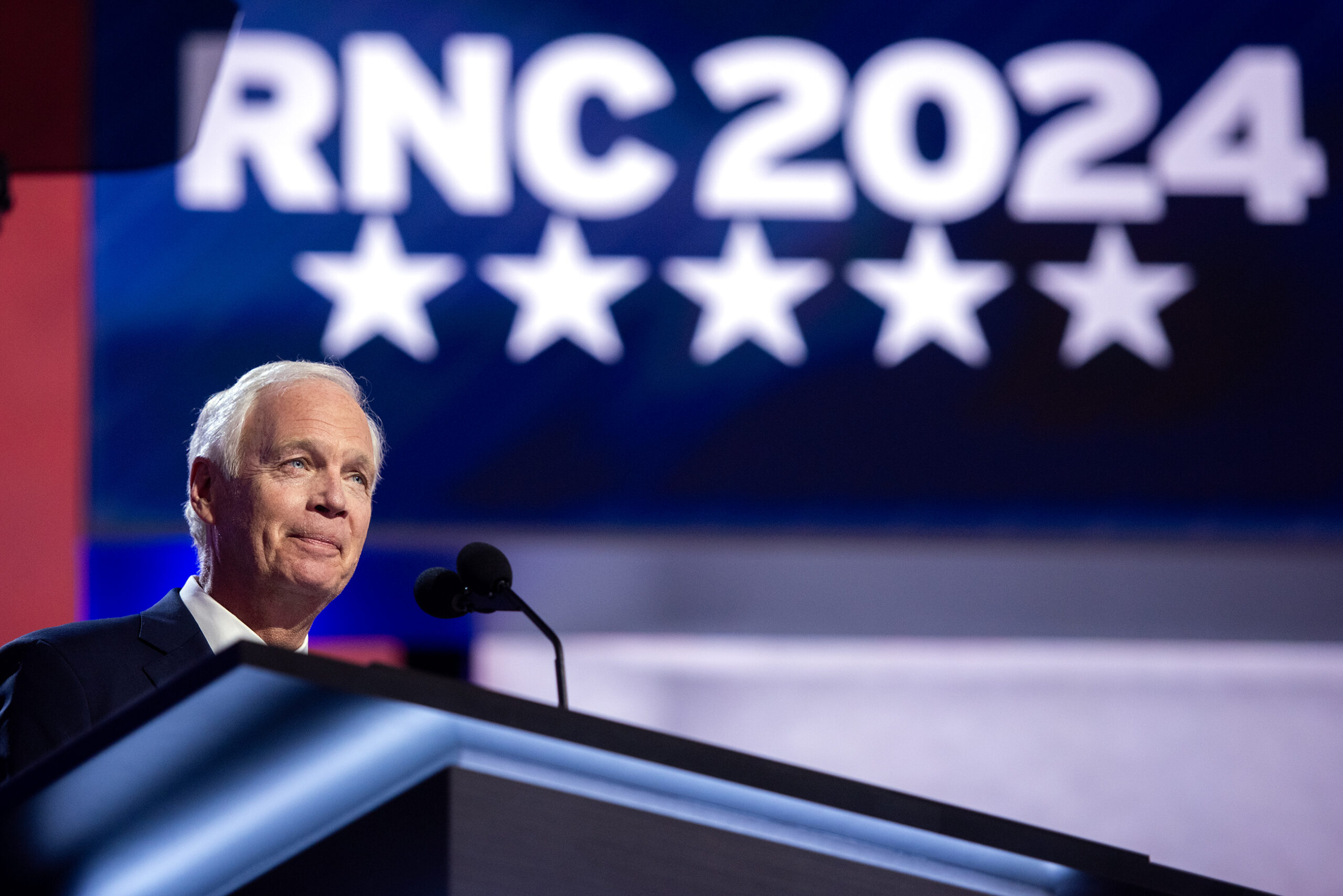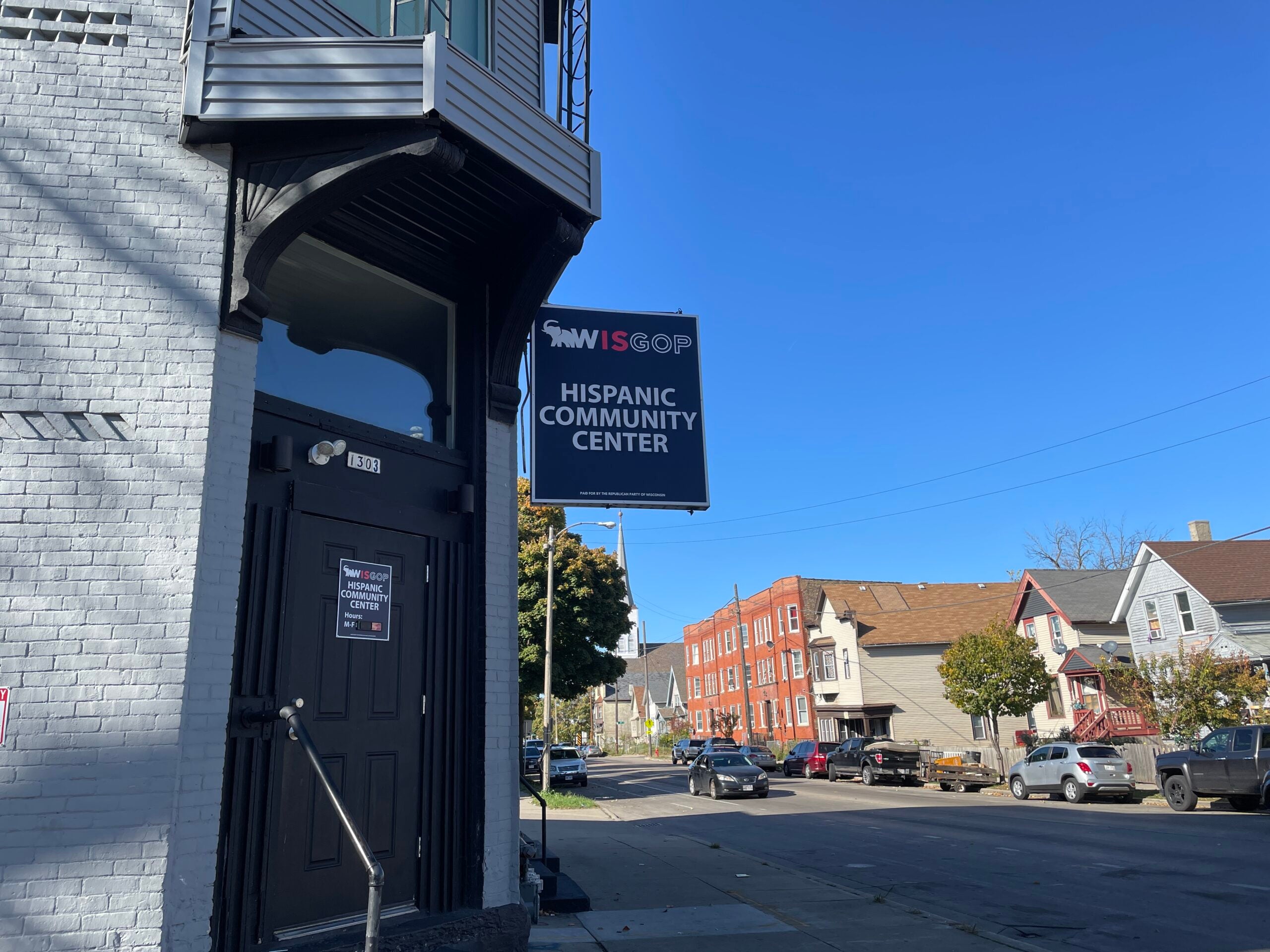U.S. Sen. Ron Johnson promoted the Republican Party’s views on voucher schools, crime prevention and immigration policy at a recent roundtable discussion with members of Milwaukee’s Hispanic community.
The event was part of an effort by Republicans to court Hispanic voters. In September, the party opened a GOP-run Hispanic Community Center on Milwaukee’s south side. Johnson called last Friday’s event “proof positive that as Republicans, we want to have a very large tent.”
Round table participant Marty Calderon, a pastor at God Touch Milwaukee, said he is glad to see Republican organizing efforts in Latino neighborhoods.
Stay informed on the latest news
Sign up for WPR’s email newsletter.
“The Democrats will come in and come all over our area,” Calderon said. “I know that on this side of town … (people) were given a one-sided story on a lot of things. And I think a lot of Latino families are more conservative than what people think.”
The group attending the Republican National Committee-sponsored event was friendly to that message. When an attendee urged the room to vote for conservative Milwaukee mayoral candidate Bob Donovan, Johnson said “he answered (your question) better than I did.”
Nationally, Hispanic voters are often swing voters, and there is evidence that some have shifted toward the Republican Party in recent years. The liberal data analysis firm Catalist found that Democrat Joe Biden won about 61 percent of Latino voters in 2020, but that the Republican share of this group increased from 2016.
This has implications for midterm races like Johnson’s 2022 reelection campaign, which is one of the nation’s most closely watched U.S. Senate contests. In December, a Wall Street Journal poll found that Hispanic voters were evenly split between Democrats and Republicans for the midterm elections. That poll found 37 percent favored a Republican congressional candidate and 37 percent favored a Democratic contender and a sizable 22 percent of respondents saying they were undecided.
In response to the event, Philip Shulman, a spokesperson for the Democratic Party, pointed to Democratic policies, including Gov. Tony Evers’ tax cuts for small businesses, including Hispanic-owned businesses.
“Whether it’s Milwaukee or Minocqua, Wisconsinites know Ron Johnson will always put his self-serving agenda first, and election-year charades won’t undo the demonization and damage Johnson has done to Wisconsin’s Hispanic community,” Shulman said in a statement.
Polling also shows that most U.S. Hispanics say a path to legal status for those in the country illegally is the most important immigration policy goal. Johnson, a member of the Senate’s Homeland Security Committee, said he believes that “the vast majority of people who are coming here illegally, I think we would welcome them as legal immigrants.” He pointed to a recent Wall Street Journal column he wrote about the U.S. worker shortage that pointed to a need for the U.S. to bring more people here, though it didn’t advocate for specific immigration policies.
A position in favor of increasing legal immigration would put Johnson at odds with former President Donald Trump, who is the frontrunner for the party’s 2024 presidential nomination.
Trump reduced legal immigration paths in multiple ways, and his administration sought even deeper cuts to legal immigration alongside its hardline stances on illegal border crossings.
The roundtable discussion took lengthy detours into discussions of one of Johnson’s main preoccupations in the last year: questioning the efficacy of the COVID-19 vaccine. Johnson has repeatedly spread false or misleading information about the vaccine, which dramatically reduces the risk of serious illness or death from COVID-19. He has also opposed vaccine mandates, a view shared by most Republican elected leaders. One panelist said his wife lost her job with a hospital system because she did not get vaccinated.
Wisconsin’s Hispanic population increased by 7.6 percent in the last decade, according to 2020 U.S. Census data, making it the state’s largest minority group.
Wisconsin Public Radio, © Copyright 2025, Board of Regents of the University of Wisconsin System and Wisconsin Educational Communications Board.



